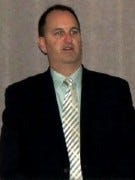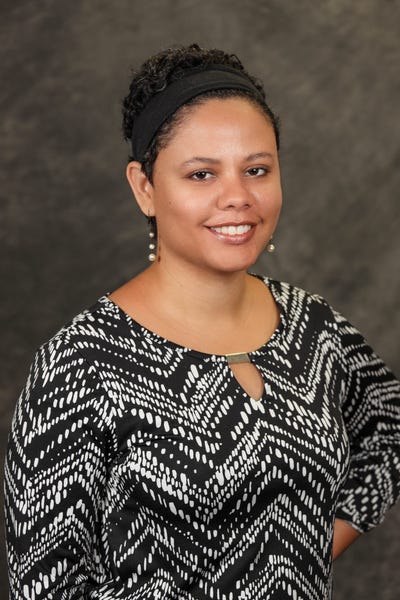Partners take advantage of federal grants to reach education customers.
April 29, 2022

Miles Cox should understand the ins and outs of serving Kentucky’s education sector. He’s COO of Volta, a Kentucky-based managed IT, infrastructure and cybersecurity firm that provides technology to more than 170 public school districts in that state.
Cox said his firm can serve many public sector clients because of its strong relationship with power management company Eaton. Volta partnered with Eaton seven years ago to supply Eaton’s signature products such as uninterruptable power supply (UPS) to schools. UPS devices provide battery backup when electricity fails.
Volta has an eight-year contract with the state of Kentucky to provide items like Eaton’s UPS. The firm has ongoing deal registrations and approved pricing that refresh and update twice a year.

Volta’s Miles Cox
“We need the same pricing today that we were able to get five years ago when we originally installed the UPS. Eaton rose to the top and not only with the technology, but also on the price side and even on the relationship side with the Eaton sales team,” Cox said. “Eaton is a true partnership.”
Steven Loeb is vice president of distributed infrastructure sales at Eaton. He said the education sector is important for both channel partners and school systems. As partners bring innovative technologies to school districts across the country, educators can continue their teaching responsibilities under uninterrupted conditions.
“Eaton is proud to support these partners with our power management solutions to help enhance uptime in these environments as schools leverage technology to improve learning outcomes for students at all levels,” he said.
Education Sector and the Power Supply
An interruption in power has ripple effects for teachers and students.

Eaton’s Steven Loeb
Over the past decade, Eaton’s blackout tracker logged more than 32,000 separate power outages across the country. Many of these impacted schools and disrupted studies and services.
Take Trenton High School in Michigan for example. The school has to reschedule the ACT exam when an outage forced students to miss the original exam.
An outage meant nearly 20,000 San Mateo County Community College District students had to stay home on the first day of the spring semester in 2010.
Aging infrastructure on an increasingly overtaxed power grid creates further havoc with the power supply, according to an Eaton report. In 2018, an outage at California State University Sacramento caused an unexpected campus-wide blackout. An old switchgear failing caused buildings to be shut down and forced the university to cancel classes.
Beyond the inconveniences, power failures are also prohibitively expensive for schools, according to an Information Technology Intelligence Consulting study. About an hour’s worth of downtime results in $100,000 in costs. In addition, education-based IT administrators are expected to do more with less. In fact, budget limitations ranked sixth in recent years among higher Educause’s list of top 10 IT issues.
Partners are in an advantageous position to sell equipment to public sector customers to mitigate these threats and remedy budgetary woes.
Incentives
School systems may not always have all the funds to address IT concerns. However, there are federal initiatives that both school districts and partners are taking advantage of to meet power needs.
The Federal Communications Commission’s E-Rate program makes telecommunications and information services more affordable for schools and libraries. It offers a discount from 20%-90% based on the poverty level of the school. The eligible school submits a request for competitive bids that vendors can bid on.
Peter Kaufman is vice president of advanced technologies at CSPi, an Eaton partner. We caught up with him at this week’s Eaton Partner Conference in Ft. Lauderdale, Florida.

CSPi’s Peter Kaufman
“[Schools] can get at a significant discount because the power equipment is helping to enable a network that’s providing access to students,” Kaufman said about Eaton UPS. “The FCC is all about creating initiatives to allow students to access the internet or learn through that connectivity.”
CSPi has these contracts with educational institutions, including a local community college in Florida.
“You know, there are always these extra funds. But you really need to be knowledgeable. Our job is just to help our clients know where the money is,” Kaufman said.
Cash Flow
Kyle Yost is president of En-Net Services, another Eaton partner.
Despite the consistency of the contracts, Yost said selling products to the public sector can have drawbacks as well. This is particularly the case regarding cash flow.

En-Net Services’ Kyle Yost
“The public sector entities often don’t pay us in 60-90-120 days. So, there’s this cash flow window that makes it very difficult to do business,” Yost said.
He added that payment for goods often comes from multiple sources — the local school districts and the Universal Service Administrative Company. Each has its own payment deadlines.
Eaton said the company works with partners to address specific financing challenges, including payment schedules.
“Eaton actually has a program in some circumstances for some products where they will provide elongated terms of finance through the distribution channel,” Yost said. “We have some 90 days where we have to figure out another way of financing because we have to pay for [the goods]. We’ve worked around that by having lines of credit at banks,” Yost said. “However, when it comes to educational institutions, despite the delay, we always get paid.”
Want to contact the author directly about this story? Have ideas for a follow-up article? Email Claudia Adrien or connect with her on LinkedIn. |
About the Author(s)
You May Also Like


